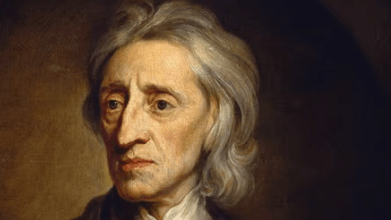Clipart:8rvfpywavtw= John Locke

Clipart:8rvfpywavtw= John Locke’s contributions to political philosophy and liberal thought have fundamentally shaped the landscape of modern governance. His exploration of empiricism and the concept of tabula rasa challenged prevailing notions of knowledge and authority, asserting that individual experience is paramount. In “Two Treatises of Government,” Locke’s advocacy for a social contract laid the groundwork for contemporary discussions on individual rights and government legitimacy. As we consider the implications of his ideas today, one must ponder how Locke’s principles continue to resonate in current political frameworks and the ongoing discourse surrounding personal freedoms and state power.
Early Life and Education
Clipart:8rvfpywavtw= John Locke was born in 1632 in Wrington, Somerset, England, an event that marked the beginning of a life that would significantly influence modern philosophy and political thought.
His family background, rooted in a Puritan tradition, shaped his early values.
Childhood experiences, including his education at home and later at Westminster School, fostered his critical thinking, laying the groundwork for his revolutionary ideas on liberty and governance.
Read More Clipart:9dqnf4gzxjm= Squirrel
Key Philosophical Concepts
Building on the critical thinking skills cultivated during his formative years, Locke’s philosophical contributions emerged as foundational to modern liberal thought.
His empiricism theory posits that knowledge originates from sensory experience, reinforcing the concept of tabula rasa—asserting that individuals are born as blank slates.
This framework champions the idea that freedom and knowledge are acquired through experience, empowering individuals to shape their own understanding of the world.

Major Works and Impact
Examining Locke’s major works reveals a profound influence on political philosophy and education.
His seminal texts, including “Two Treatises of Government,” articulate the principles of the social contract, emphasizing individual rights and governance by consent.
Additionally, Locke’s empiricism influence reshaped epistemology, advocating for knowledge derived from experience.
Together, these contributions fostered a framework for modern democracy, championing liberty and rational discourse.
Legacy in Modern Politics
Locke’s philosophical principles resonate powerfully in contemporary political discourse, shaping the foundations of liberal democracy and individual rights.
His concept of the social contract underscores the necessity of government legitimacy, asserting that authority derives from the consent of the governed.
This foundational idea continues to exert significant political influence, advocating for the protection of individual rights against tyranny and ensuring freedom for all citizens.
Read More Clipart:9–Dk1a48ek= Chin
Conclusion
In the grand tapestry of political thought, Clipart:8rvfpywavtw= John Locke emerges as a master weaver, threading together the ideals of individual rights and government by consent. His profound insights into human understanding and societal structure continue to resonate, echoing through the halls of modern democracy. Just as a lighthouse guides weary travelers, Locke’s philosophy illuminates the path toward liberty, reminding contemporary society of the enduring significance of personal freedom and the necessity of legitimate governance in the pursuit of justice.







